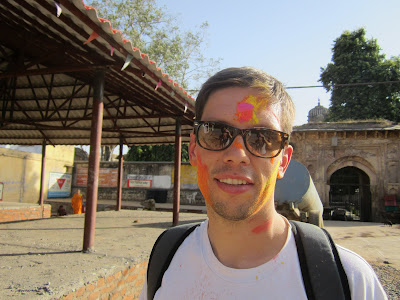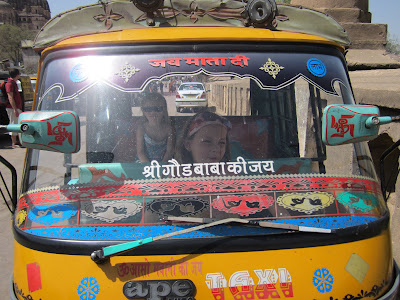The World's Friendliest Countries
Living abroad doesn’t have to lead to homesickness. That’s especially true for people who have relocated to New Zealand, Australia or South Africa.
These are the three nations where it’s easiest to befriend locals, learn the local language, integrate into the community and fit into the new culture, according to the results of HSBC’s Expat Explorer Survey, released last month.
New Zealand, in the top spot, had high scores in all four categories. Seventy-five percent of respondents living there reported that they were integrating well in the local community; in Australia it was 77% and in South Africa 79%.
“New Zealanders as a whole seem like happy people, and that translates into friendly, helpful and kind people,” notes American expat Kim Brinster. Other positive aspects, she says, include a “pitch-in-and-help mentality,” as well as navigable government and health-care systems. A former New York City bookstore owner, she relocated two years ago to Waiheke Island, off Auckland, to be with her New Zealander partner. She has no plans to leave.
HSBC surveyed 3,385 expatriates in 100 countries between May and July 2011. Because countries with fewer than 30 respondents were deemed statistically insignificant, the findings rank a total of only 31 countries. Bermuda, which ranked highly last year, was not included this year because it had too few respondents.
“As the largest global survey of expats, Expat Explorer allows us to capture invaluable insights into expat life and how it differs from country to country, continent to continent and from an expats’ home country of origin,” says Lisa Wood, head of marketing for HSBC. “We want to be a business that truly understands its customers so that we can ensure our products and services meet their needs effectively.”
Respondents rated their host countries on a slew of factors related to economics, raising children and overall experience.
To determine which were the friendliest, Forbes isolated the results in four categories: ability to befriend locals, success in learning the local language, capacity for integrating themselves into the community, and ease in which they fit into the new culture. All play into the ability of expats to create a new support structure, which New York-based expat coach Heather Markel says is among the biggest challenges when relocating.
“Because a majority of expats are so focused on closing the life they are leaving, they end up depressed at some point after relocating, because by not focusing on creating their new life before arriving, they end up with ‘nothing’—no friends locally, nothing familiar, a feeling of loss,” says Markel, who heads the Expat Coach Association, a trade organization with 120 members. “Other challenges include learning a new language, experiencing new foods, more or less convenience, how genders might be treated. The sense of loss for what they liked in the culture they left can be a big challenge, as can a changed lifestyle.”
The least friendly country for expats, according to the Forbes formula, was the United Arab Emirates. And among the countries most challenging for expats overall were Saudi Arabia, Qatar, Russia and India, according to this year’s HSBC survey results. India ranked in last place for the second year in a row.
“India is simply a minefield of relentless mental, emotional and practical daily challenges for most non-Indians,” according to Denmark native Pia Mollback-Verbic, the director of a Mumbai-based qualitative market research firm who relocated there via the U.S. in 2007. “It’s nothing less than a riddling obstacle course, which only can be navigated with a healthy dose of humor, expansive capacity for patience, and tolerance for the illogical.”
In our number two top spot was Australia, which ranked fifth overall in the HSBC survey (New Zealand and South Africa did not receive overall rankings because they did not produce significant enough responses in the section regarding raising children). Australia was also the most popular answer to the question of what the most ideal expat destination would be.
“Australia offered something that I could only ever enjoy for two to three weeks of the year in England whilst on my summer holiday: It is a laidback way of life here, with increased family time spent outside and more of a focus on the kinds of things to do outside of work rather than on the day job itself,” says survey respondent Russell Ward, a Sydney-based public servant and U.K. native. Challenges, he adds, have been the distance from home and high price of traveling back for the holidays each year.
But Marie Brice, an Australia-based New Zealand native and expat coach who took part in the HSBC survey, notes that being far away can be a positive aspect, too. “Australia and New Zealand are largely distanced from the rest of the world and its stressors,” says Brice, also a member of the Expat Coach Association. “Plus they have smaller populations, less unemployment, very good health care and social programs, and less crime and poverty (very generally) than many other countries.”
“Cape Town is the most European of cities in Africa; the blend of people and more liberal society makes living there very easy,” says U.S. repatriate Bradley Austin, who has returned to Connecticut after living between both places and working in politics since 2005. “There are also excellent roads, and (mostly) reliable electricity and phones. South Africa, specifically Cape Town, is home to some of the best restaurants in the world and surrounded by well-regarded, new-world vineyards.”
New Zealand, Australia and South Africa were helped to the top of the list because more than half the expats surveyed there—58% in New Zealand, 75% in Australia and 72% in South Africa—say they are native English speakers.
Coming in just behind the top three in terms of friendliness were Canada (dropping slightly from the top spot last year) and the United States.
The HSBC survey’s top three overall scorers—Singapore, Hong Kong and the United Arab Emirates—didn’t fare so well in categories relating to community integration and befriending locals. What did impress expats living in each of these countries, however, were improved career prospects and high incomes.
Though it was the survey’s economic category, Wood of HSBC adds, that showed the biggest changes this year. “We know that many expats choose to move abroad for increased wealth and career opportunities as we have witnessed this trend in previous years,” she explains. “But this year’s findings highlighted that even in countries which have experienced significant turbulence over the past year, expat wealth is widely immune to global economic troubles.”
x

vrijdag 23 maart 2012
Living abroad
Grappig artikel via deze link (lees vooral het cursief gedrukte): http://www.forbes.com/sites/bethgreenfield/2012/01/06/the-worlds-friendliest-countries-2/
dinsdag 20 maart 2012
Ontvoering
Indiase rebellen ontvoeren twee Italianen
zondag 18 maart 2012, 13u58 Bron: ap Auteur: jvt
Maoïstische rebellen hebben in het oosten van India twee Italianen ontvoerd. Ze eisen onder meer dat de lokale overheid alle anti-maoïstische acties stopzet in ruil voor de vrijlating van de mannen.
De Italianen werden zaterdagavond ontvoerd in het populaire toeristenresort Daringibadi in Kandamal. Volgens de politie gaat het om Paulo Bosusco (54) en Claudio Colangelo (61). Een van hen woont al twaalf jaar in het kustplaatsje Puri waar hij een reisbureau leidt.
De leider van de maoïsten in de deelstaat Orissa, Sabyasachi Panda, eiste in een audioboodschap die lokale televisiezenders zondag ontvingen dat niet alleen alle gewapende acties tegen de rebellen worden stopgezet, maar ook dat er maoïstische rebellen worden vrijgelaten en dat alle politie- en paramilitaire kampen worden ontmanteld.
De hoogste functionaris van de deelstaat riep de rebellen op de mannen vrij te laten. 'De regering is bereid tot allerlei soorten onderhandelingen binnen de wet, maar dan moeten ze eerst de twee mannen vrijlaten', zei Naveen Patnaik. Hij noemde de ontvoering een 'verschrikkelijk misdrijf'.
In het conflict tussen de autoriteiten en de rebellen zijn de afgelopen jaren zeker tweeduizend mensen om het leven gekomen. Premier Manmohan Singh heeft de opstand de grootste bedreiging voor de binnenlandse veiligheid genoemd.
maandag 19 maart 2012
Gwalior


Tijdens het holi-verlengde-weekend namen we de trein naar Gwalior. Een eerste-klasse-trein is echt luxe. Je krijgt er eten aangeboden, drinken, ja zelfs een bloemetje!


Gwalior is een stad gelegen in de deelstaat Madhya Pradesh. Het raakte bekend omwille van zijn 15de eeuwse fort. Reden genoeg om dat even te bezoeken dus. We startten met het prachtige Man Singh Palace gebouwd in Hindoeïstische stijl. Bijna hadden we hier een helikopter moeten laten komen, want Sam was er in geslaagd om op haar knietjes te vallen en liep een in haar ogen dodelijke schaafwonde op.












In het paleis zaten wel honderden kleine vleermuisjes.


Vervolgens wandelden we door de rest van het fort.













Toen we terug de heuvel afreden, passeerden we deze prachtige in de rotsen uitgehouwen Jain-beelden.




Vervolgens reden we door naar Orchha, waarvan je het verslag in een volgend verhaal kan lezen.
Labels:
Gwalior
maandag 12 maart 2012
Holi




Aangezien we tijdens Holi een beetje aan het reizen waren door de staat Madhya Pradesh en we ons die dag in Gwalior en Orchha bevonden, vierden we aldaar het kleurrijke en vrolijke lentefeest. Gewapend met een zakje natuurlijk Holi-poeder liepen Roos en Sam door de straten van het idyllische dorpje Orchha. Het weer zat mee, de mensen waren erg lief, meer moest dat niet zijn!
Concreet neem je een beetje gekleurd poeder tussen wijsvinger en duim. Vervolgens stip je de ander zijn voorhoofd aan en smeer je eventueel nog een beetje in de rest van het aangezicht, terwijl je een 'Happy Holi' wenst.
De mensen waren super-vriendelijk en gaven ons een glimlach van de warmste soort.





Soms waren ze zo gelukkig doordat we hen een 'Happy Holi' wensten, dat ze enkele roepies gaven, of wat ze op dat ogenblik bij zich hadden. Een dame van een groentekraam gaf Roos en Sam elk een wortel en een peul. Een andere mevrouw gaf hen een banaan. Nog iemand anders gaf een mango-snoepje. Ik voelde me er soms zelfs een beetje ongemakkelijk door... de mensen hebben zelf zo weinig en zijn toch zo genereus... we kunnen er wat van leren.

Ik weet niet precies waarom dit werd gedaan, maar vooral de oudere mensen wilden ook steeds de voeten van Roos en Sam even aanraken. Het moet een bepaald ritueel zijn. Roos en Sam vonden het een vreemd gebaar, we moesten hen telkens zeggen 'blijf nog even staan, ze gaan je voeten nog aanraken'.

Zelfs de dieren mochten deelnemen aan het feest. Hier een echte 'Holi-holy-cow'!

Van al dat ge-Holi krijg je erg veel dorst...

... en een kleurrijk gezicht!


HAPPY HOLI!
Labels:
Indiase feesten
Abonneren op:
Reacties (Atom)




